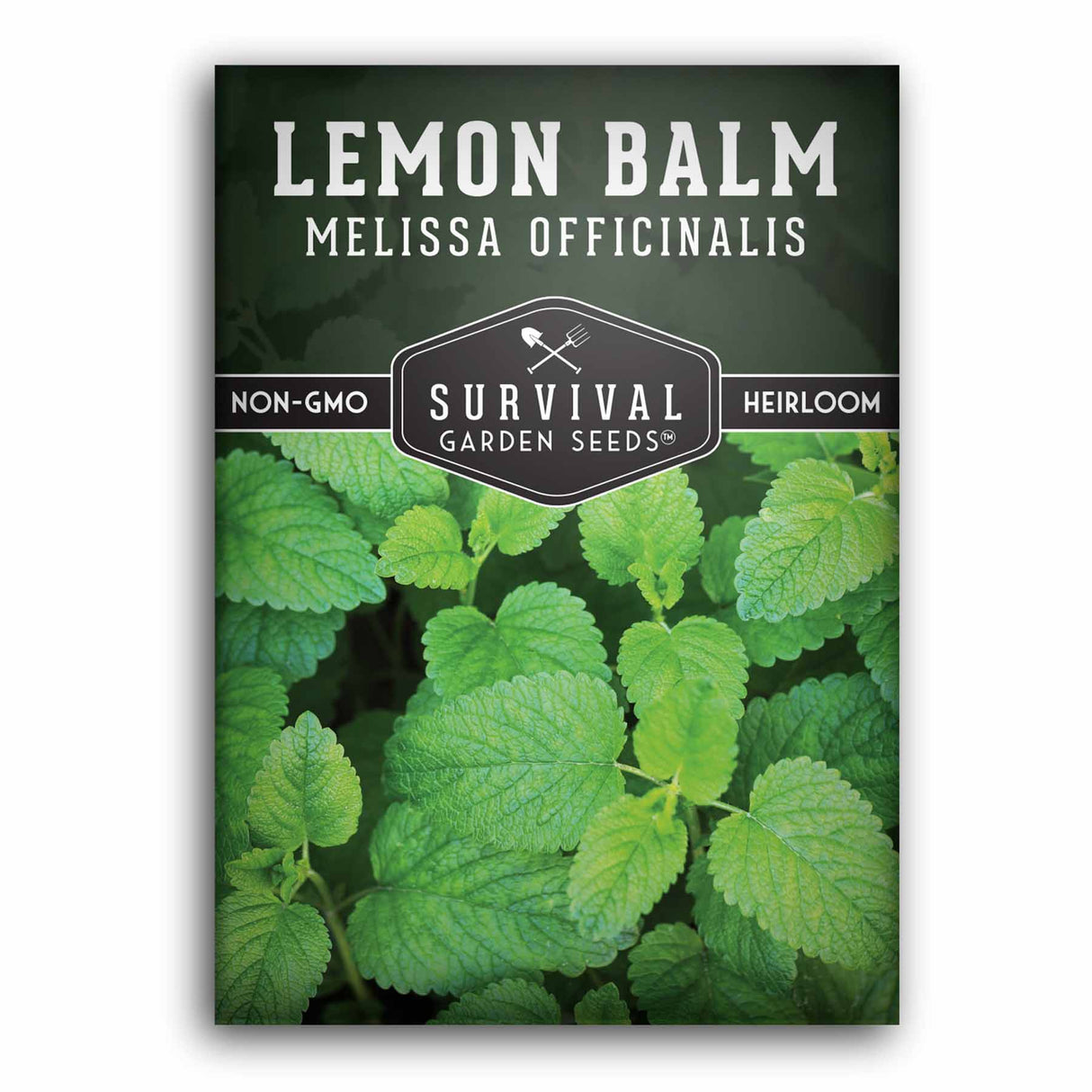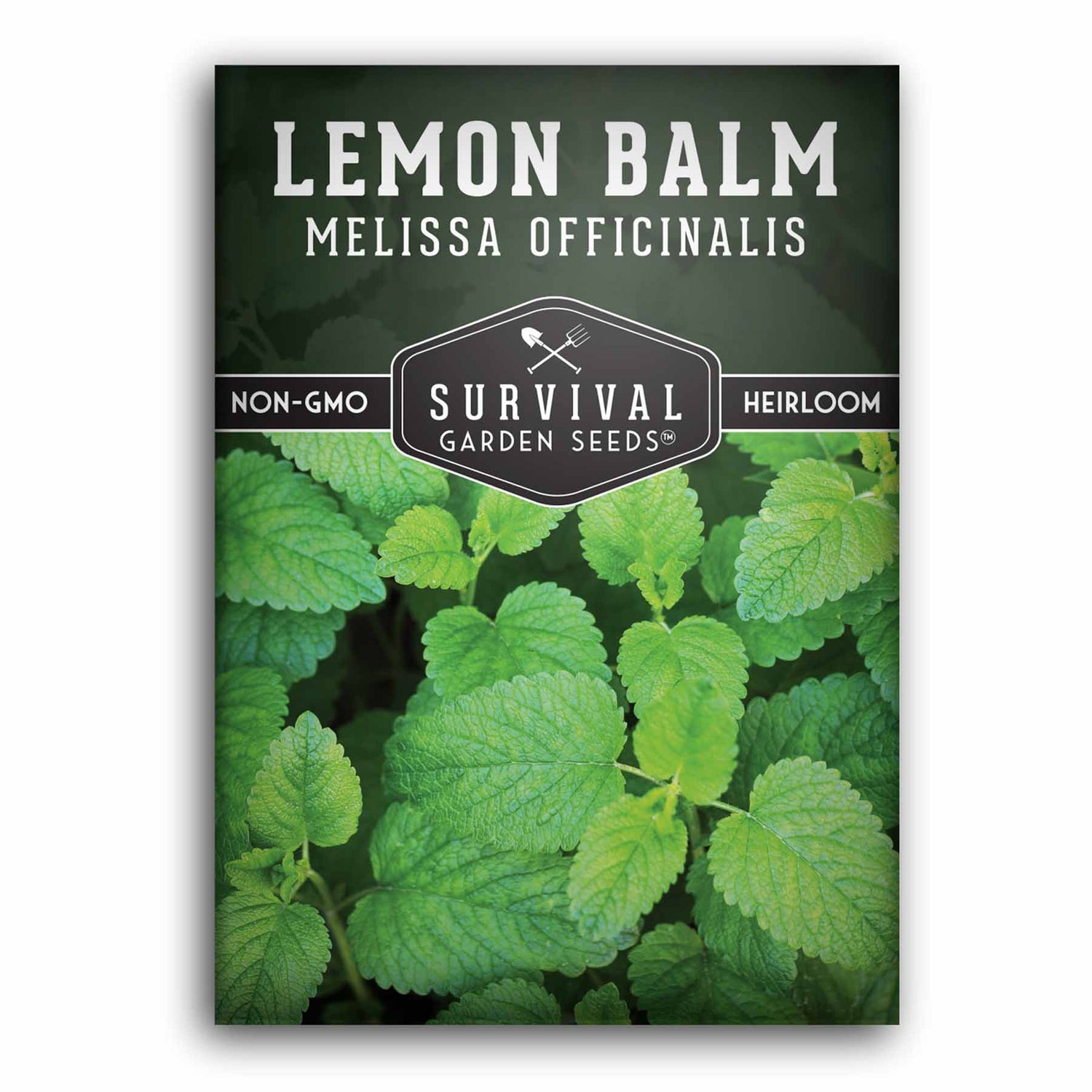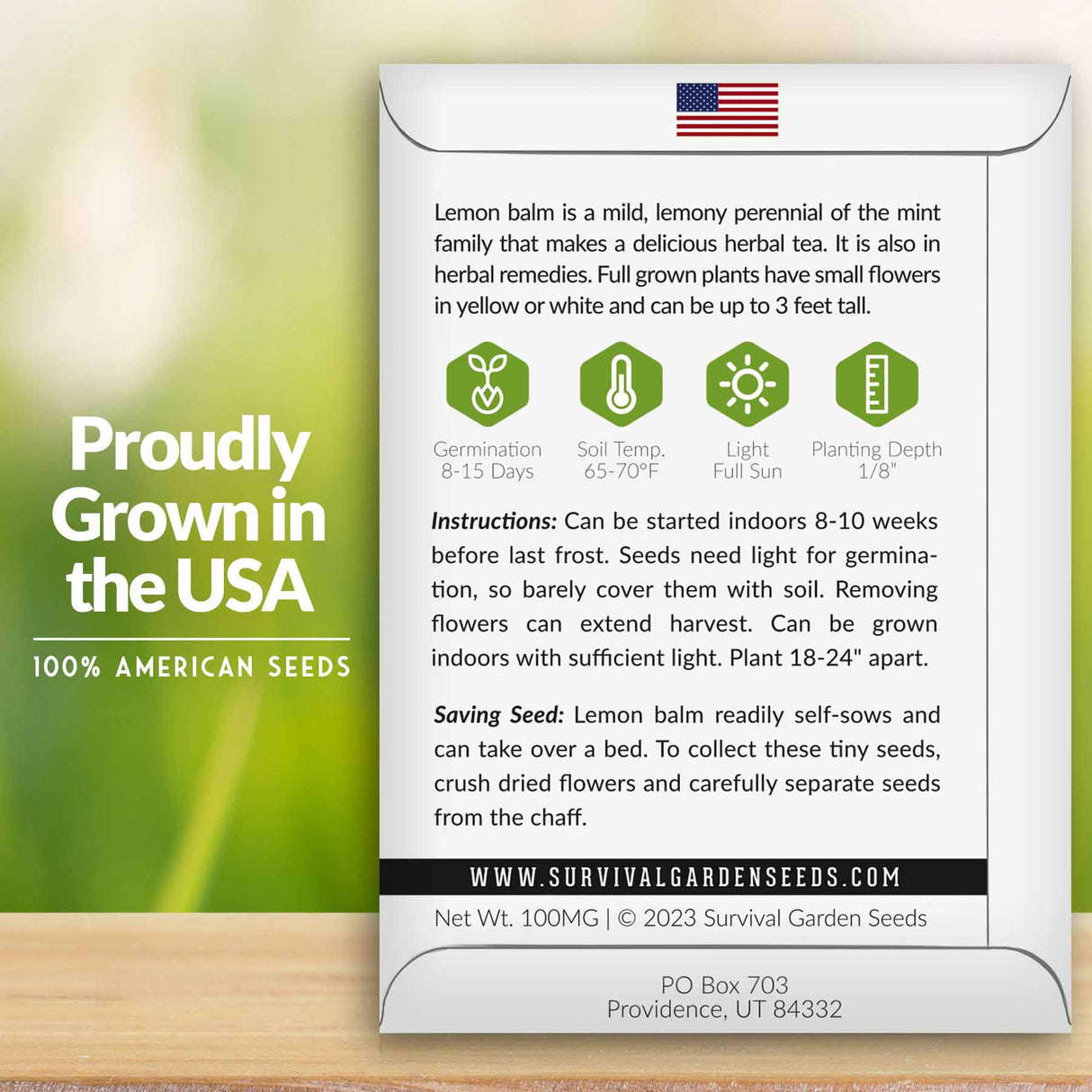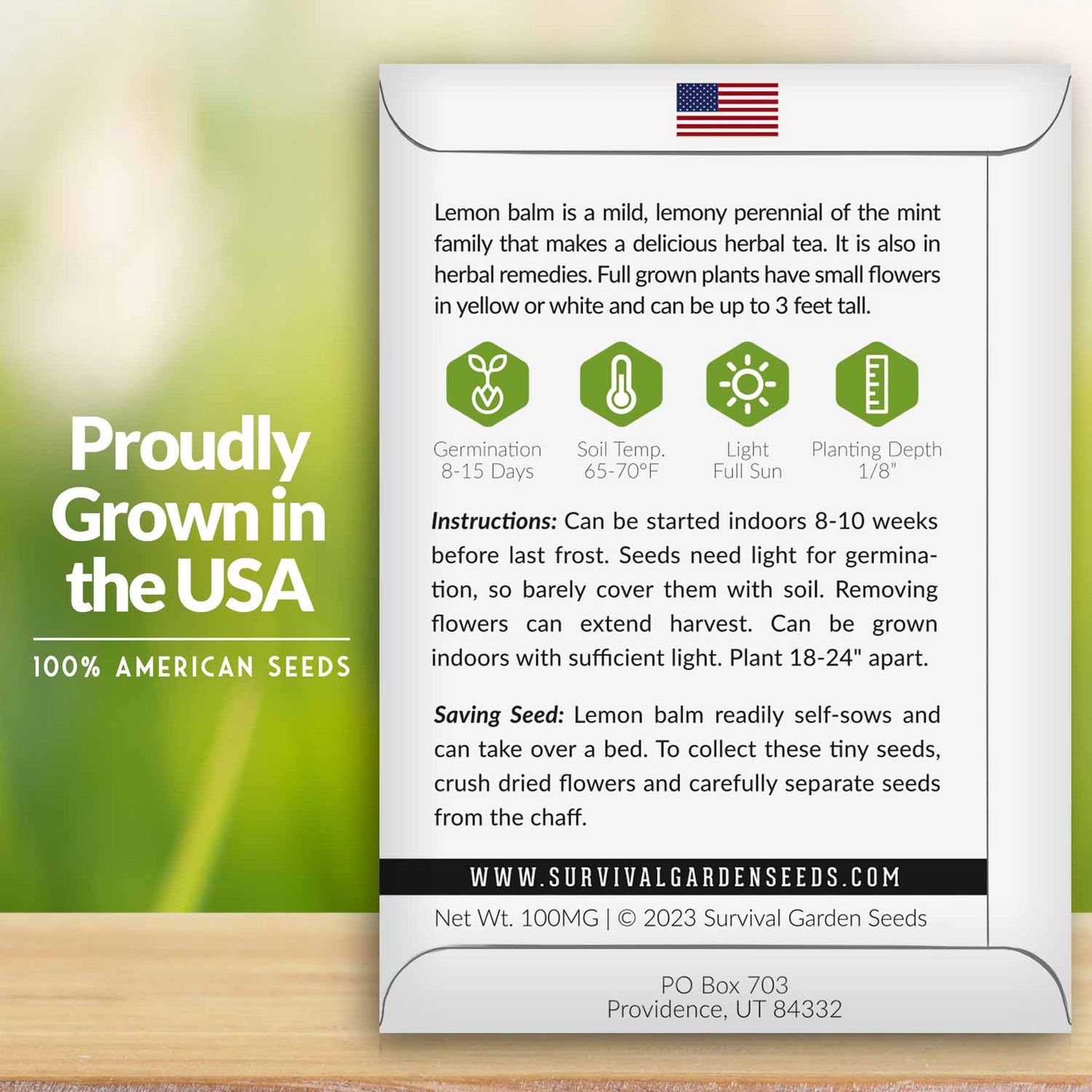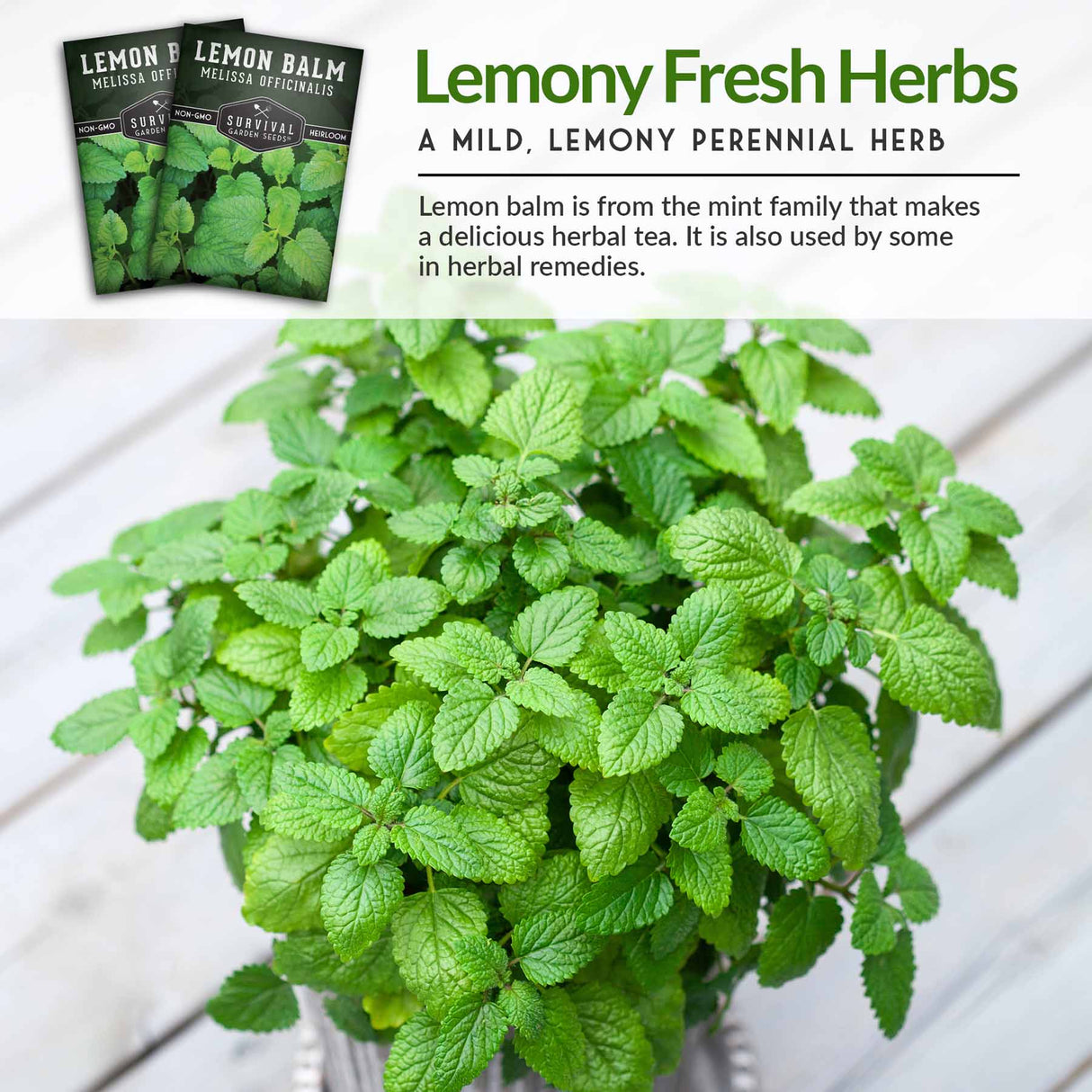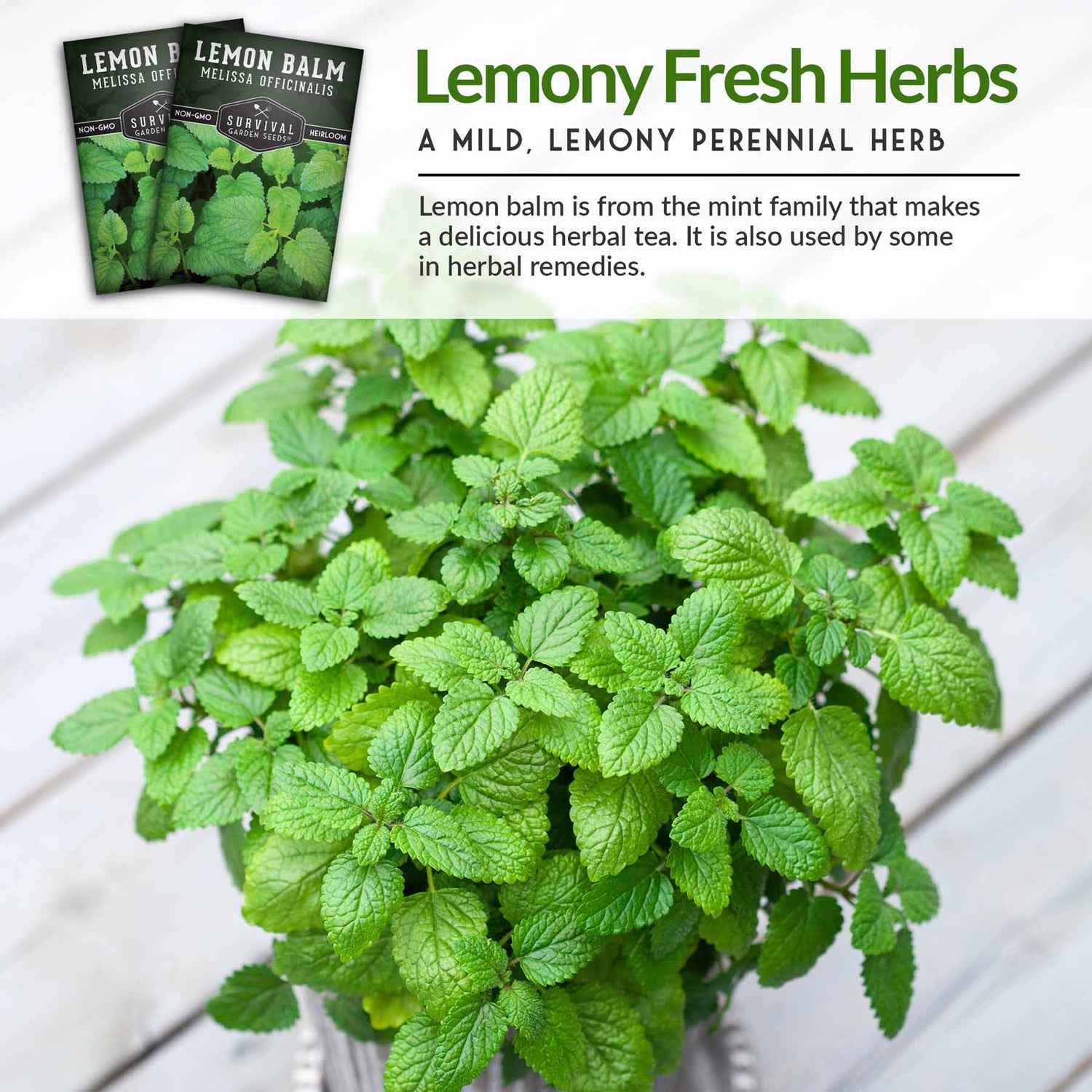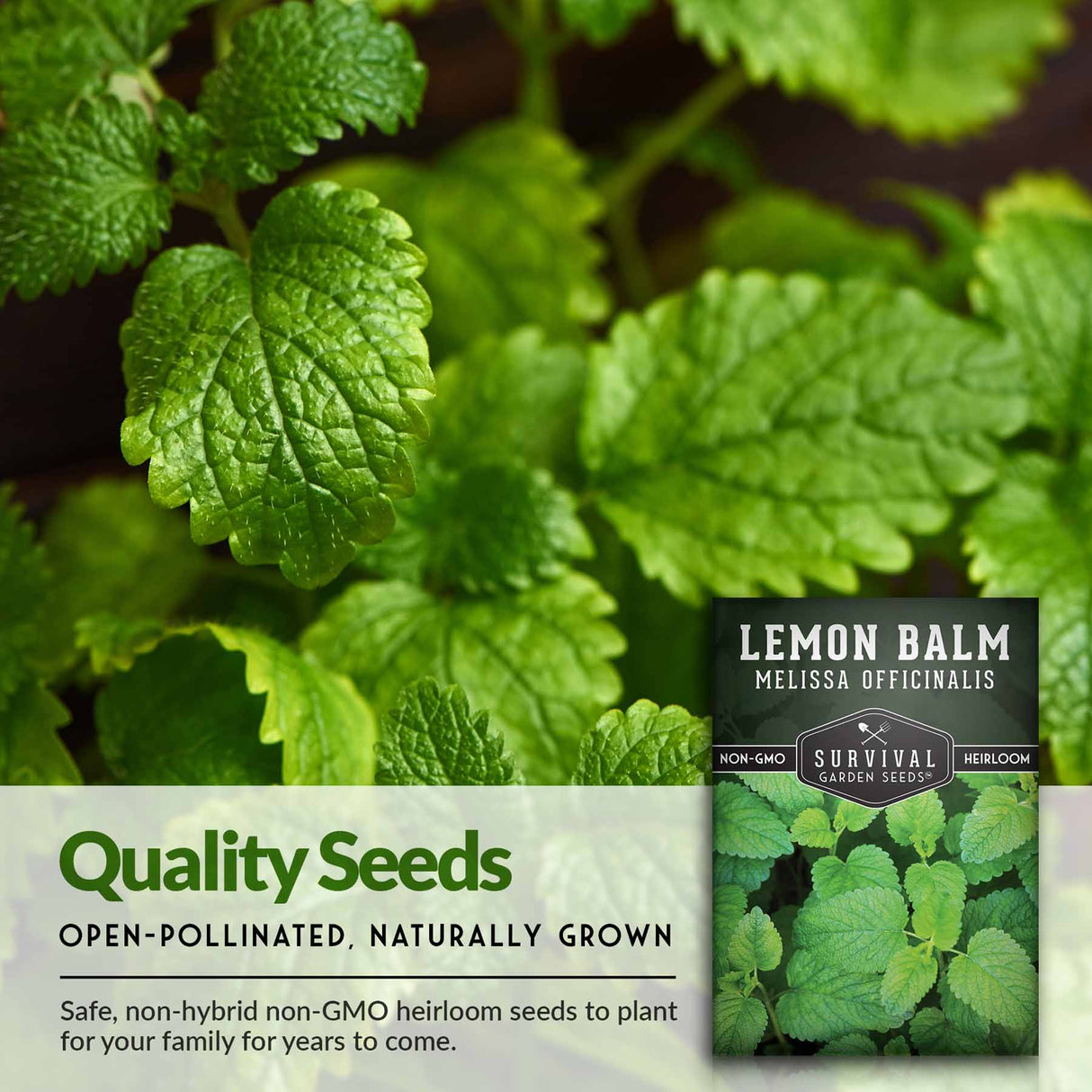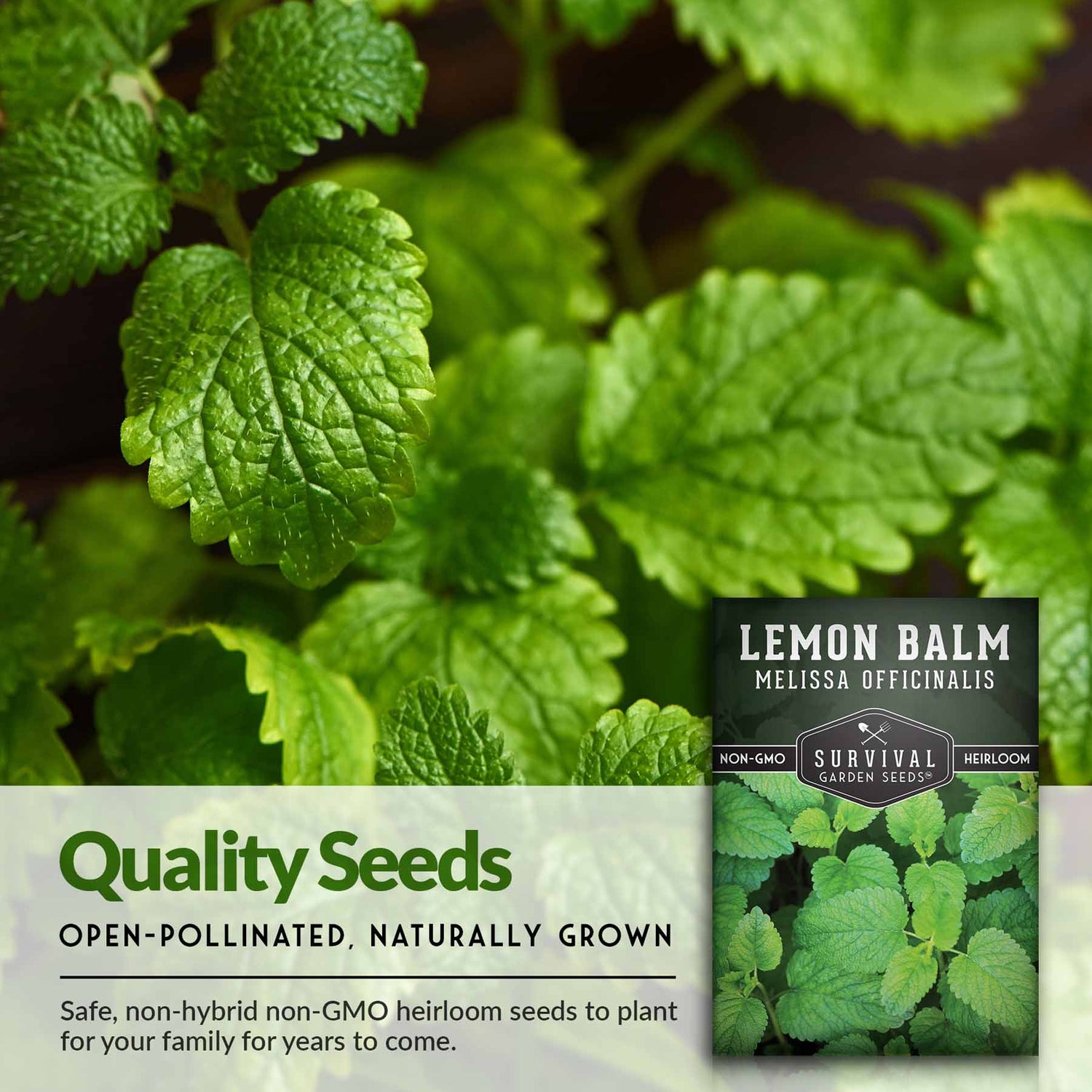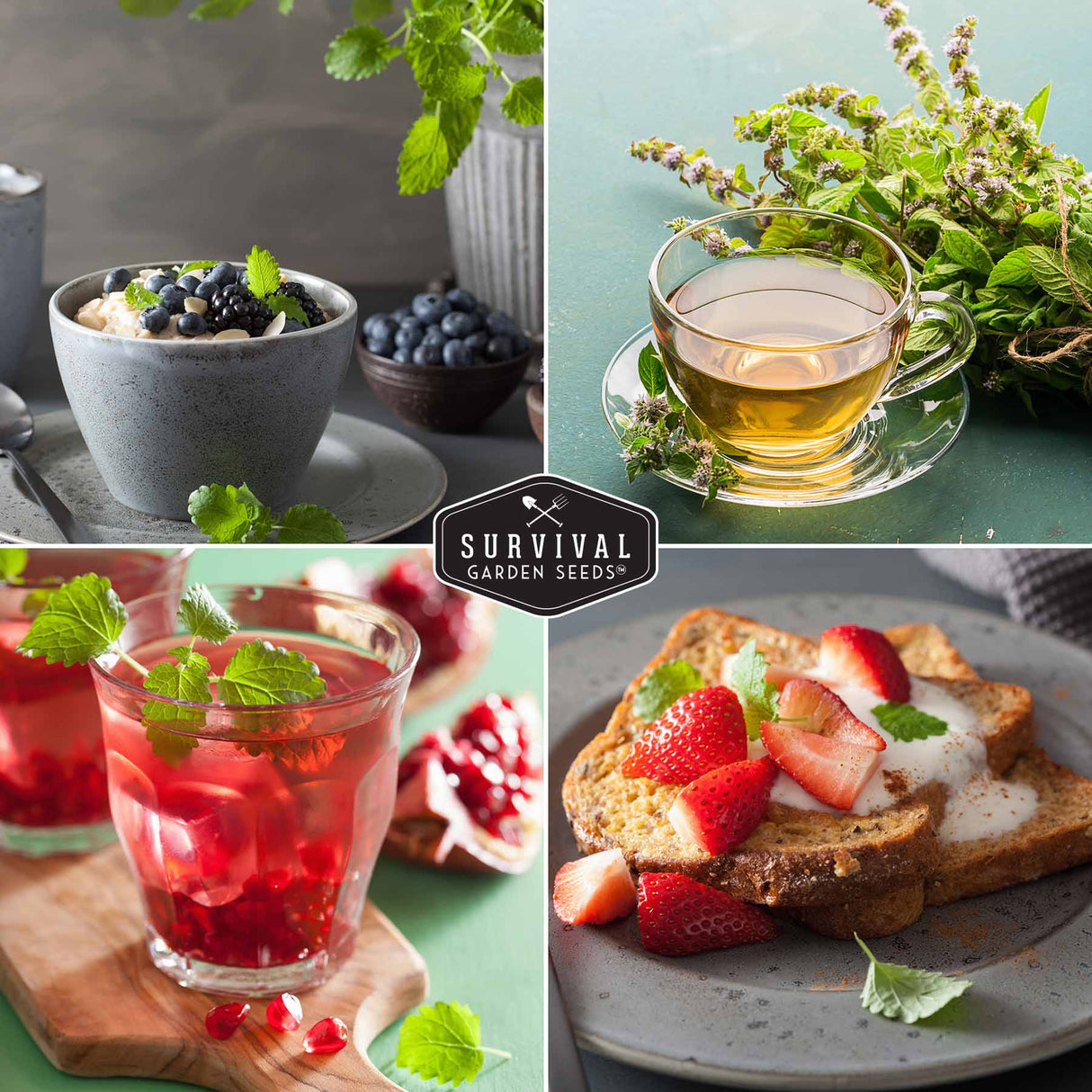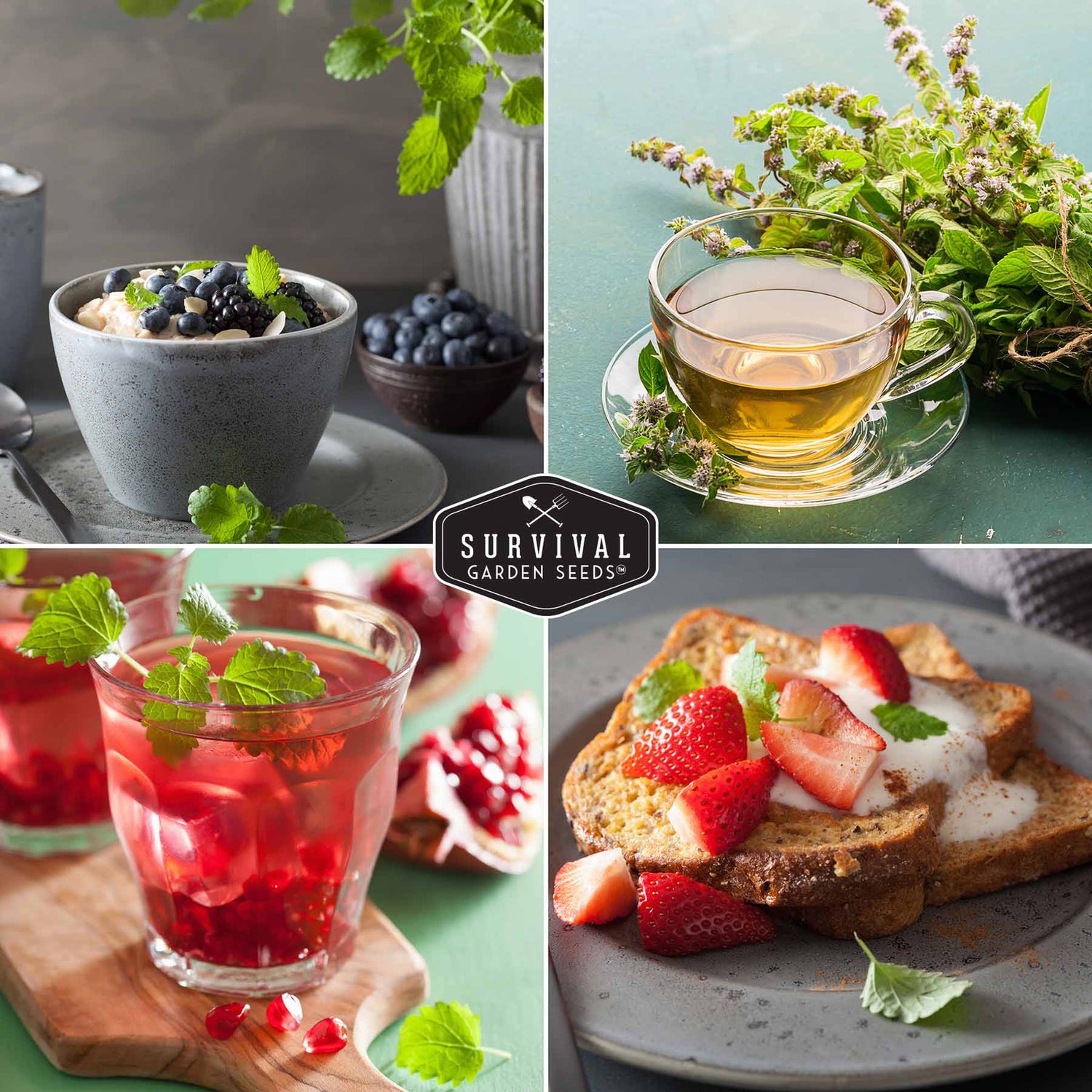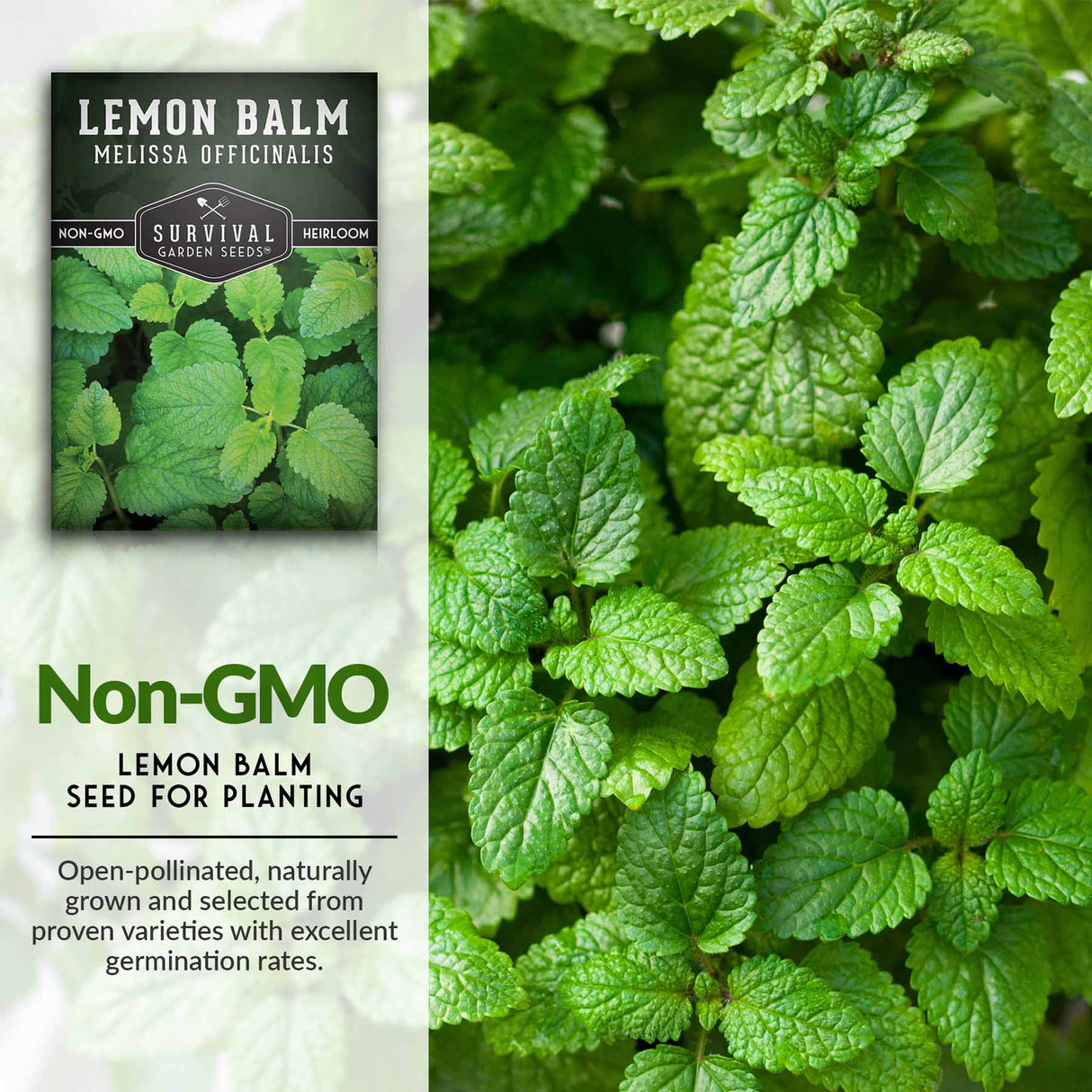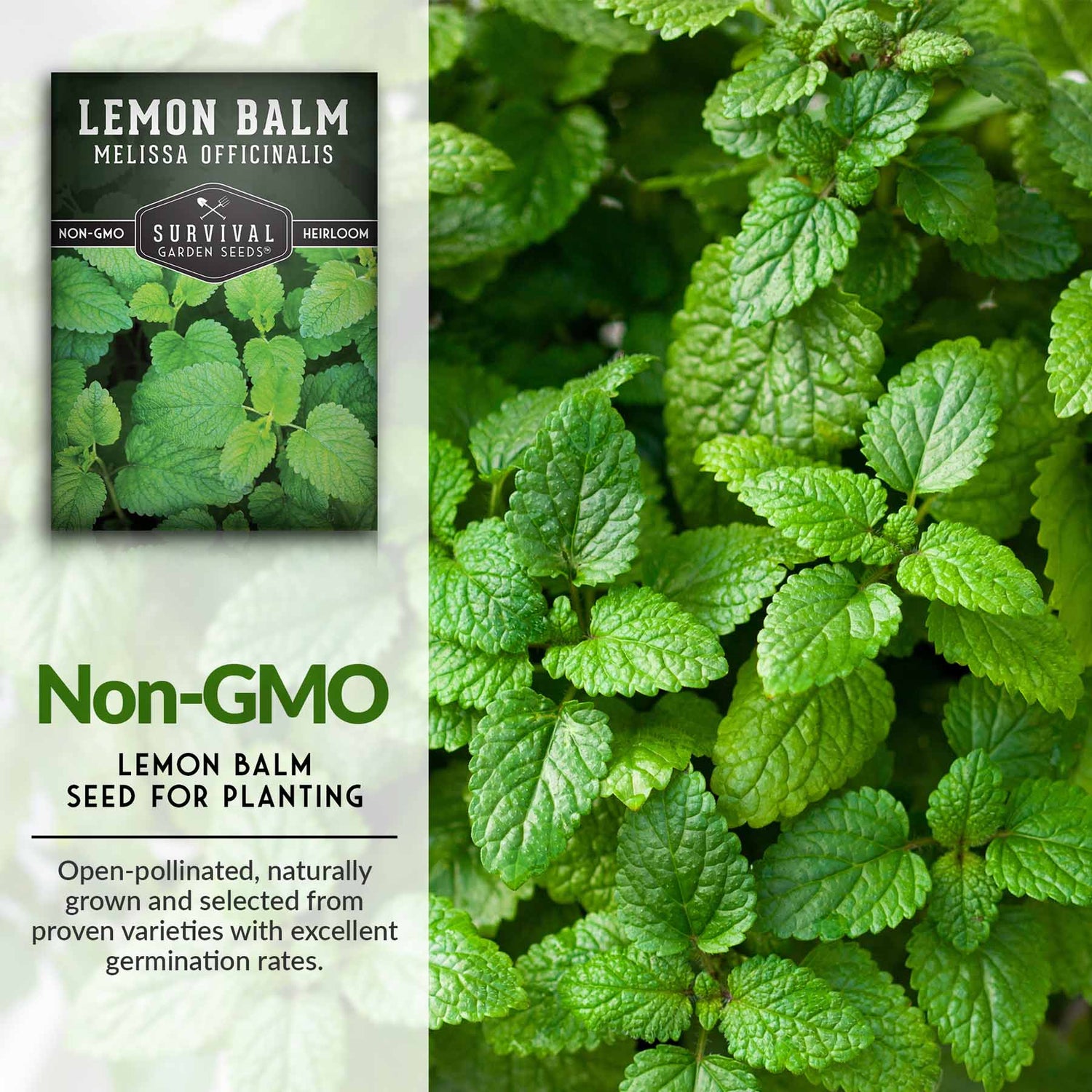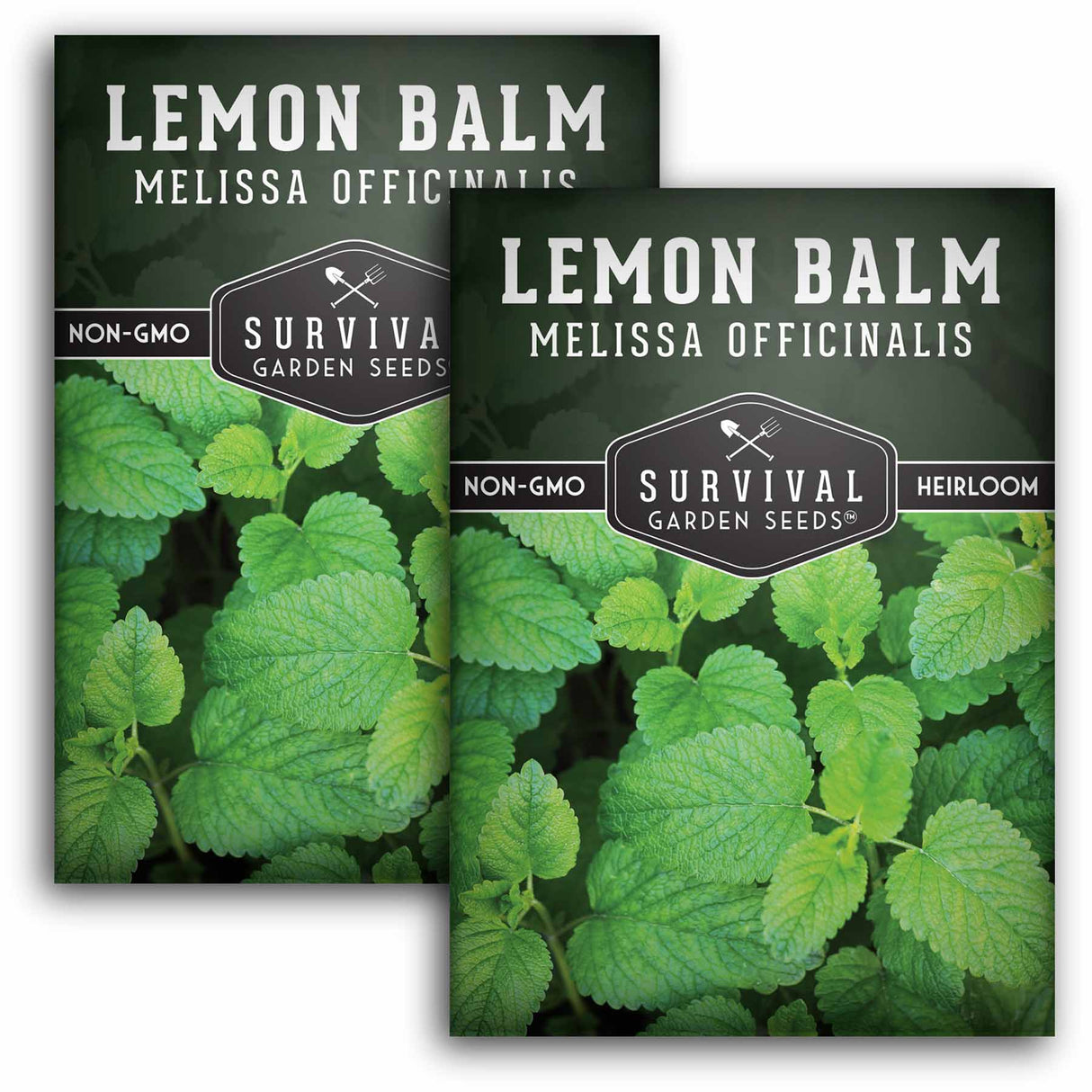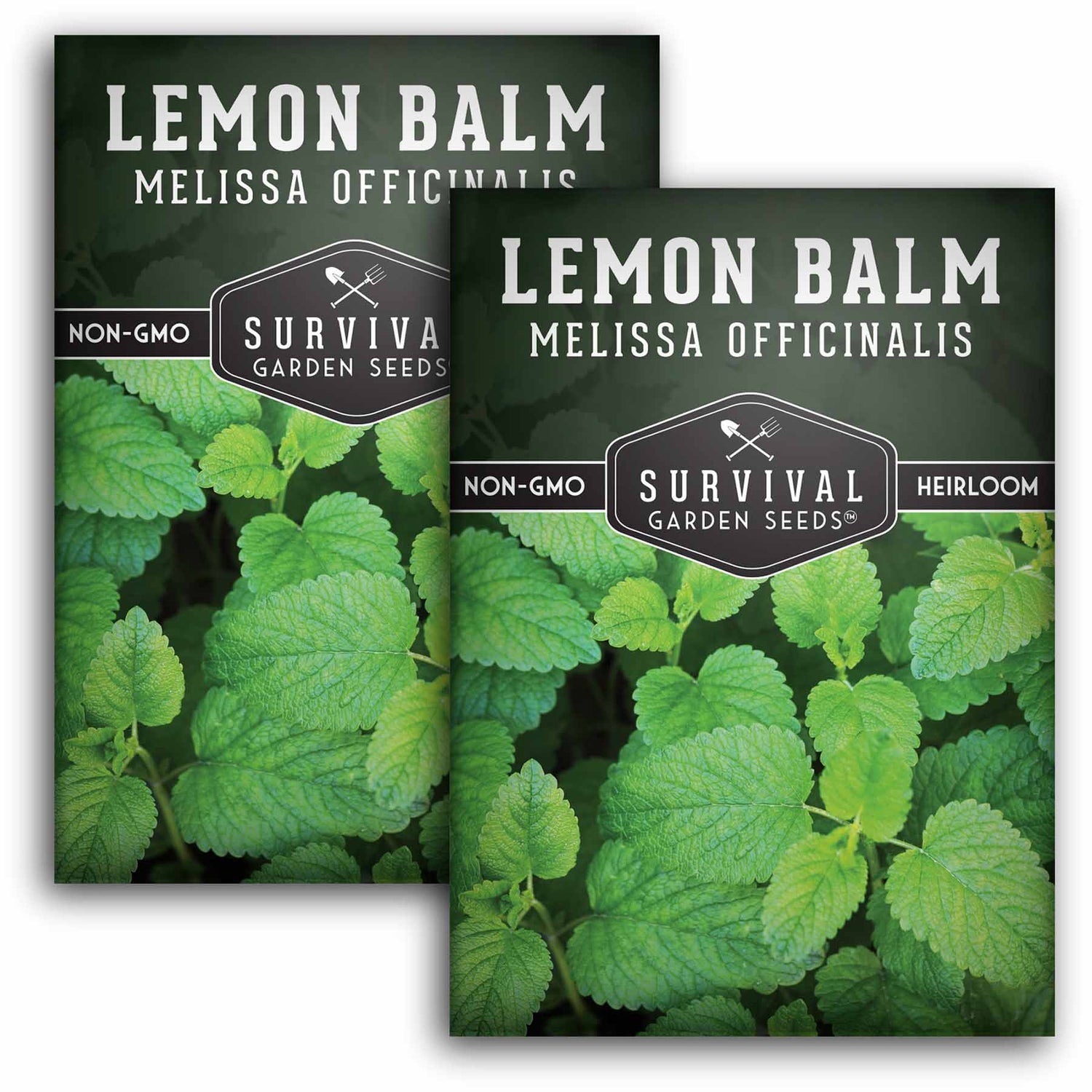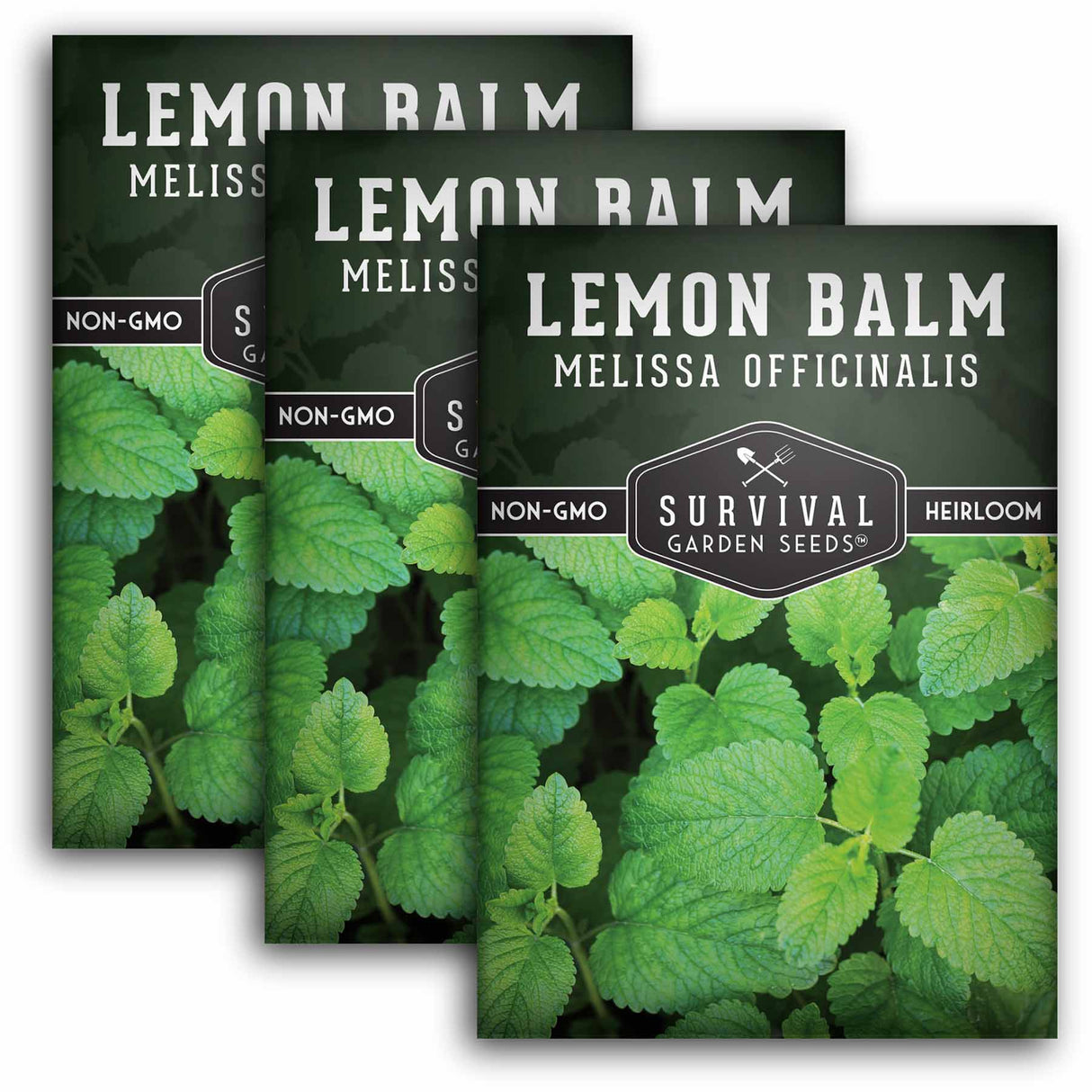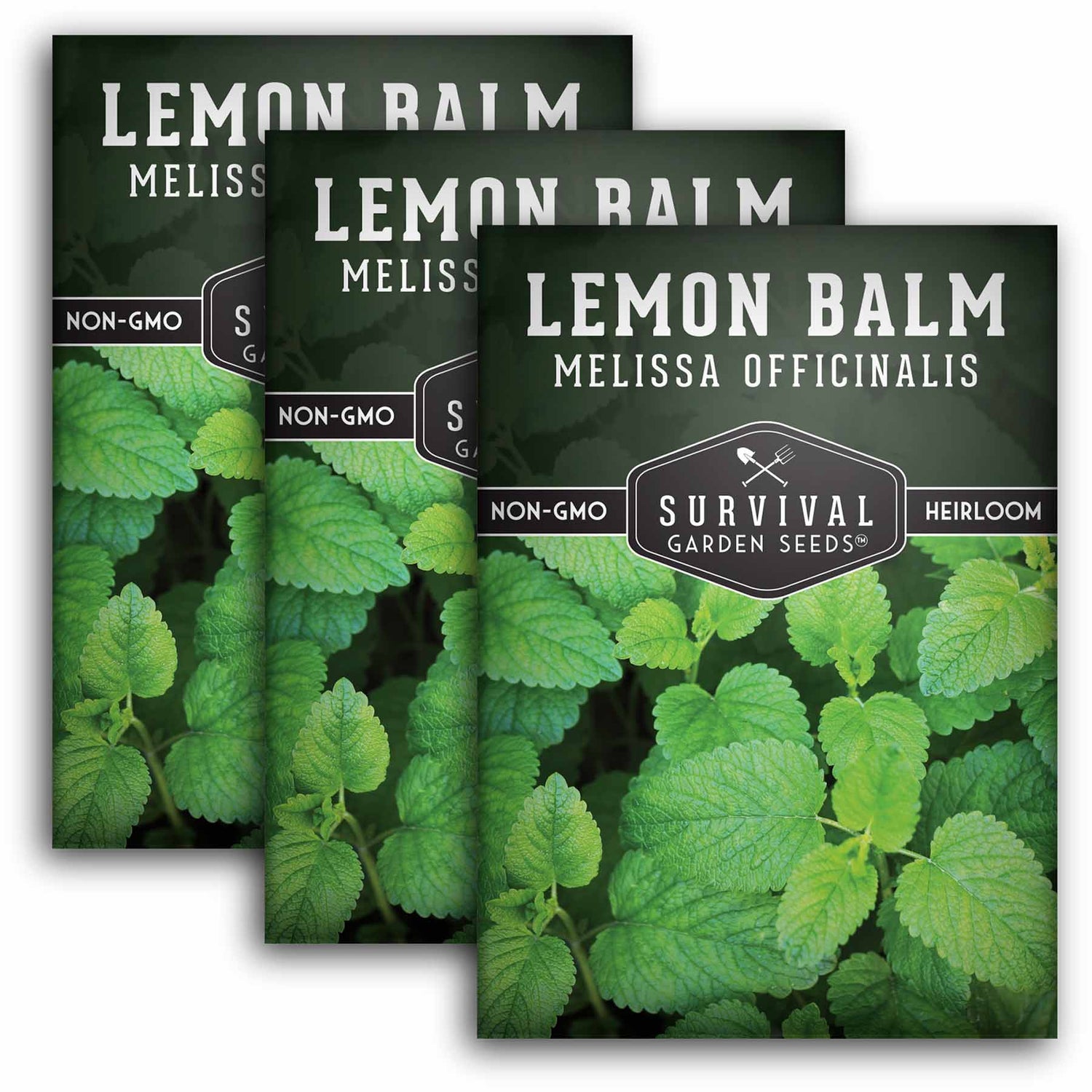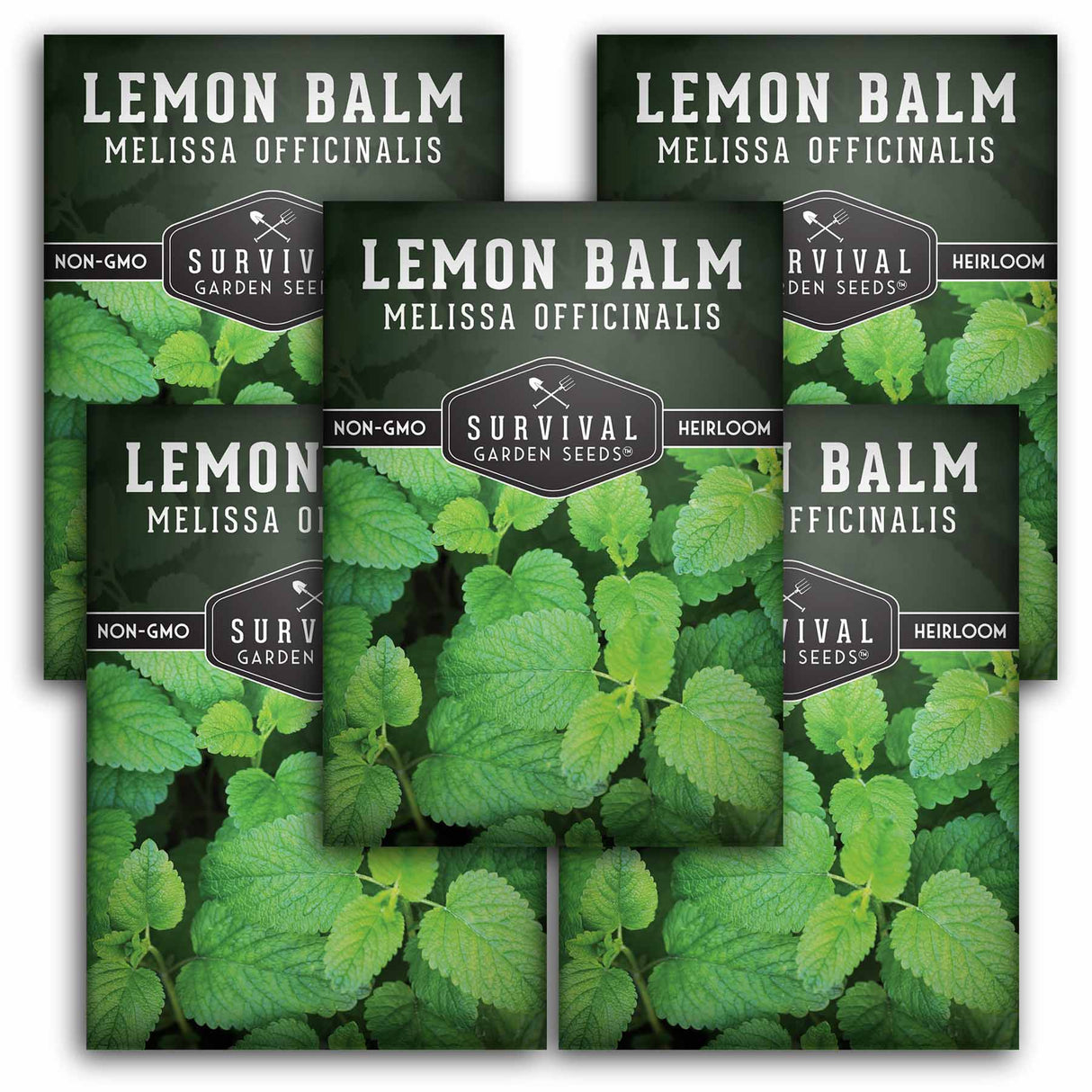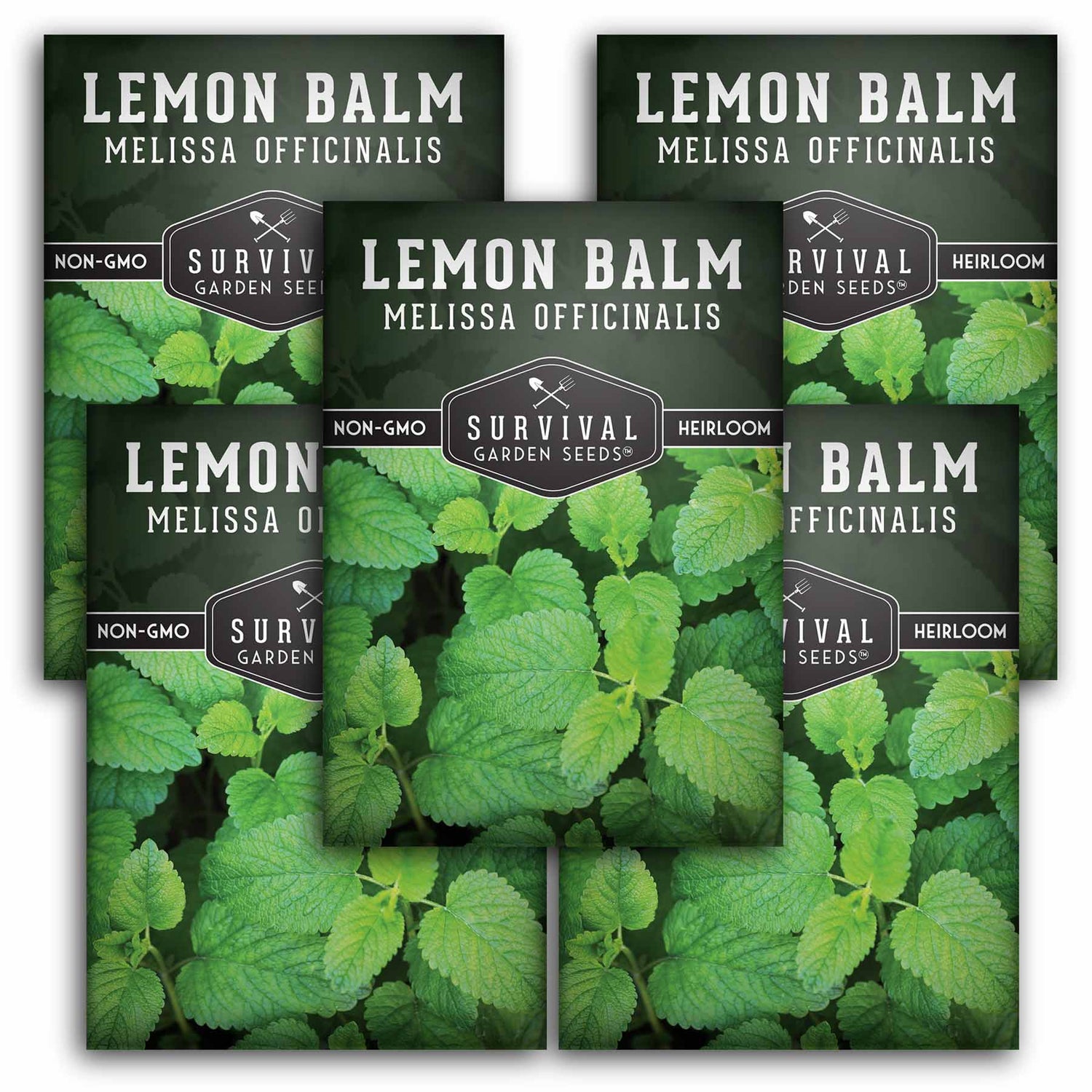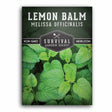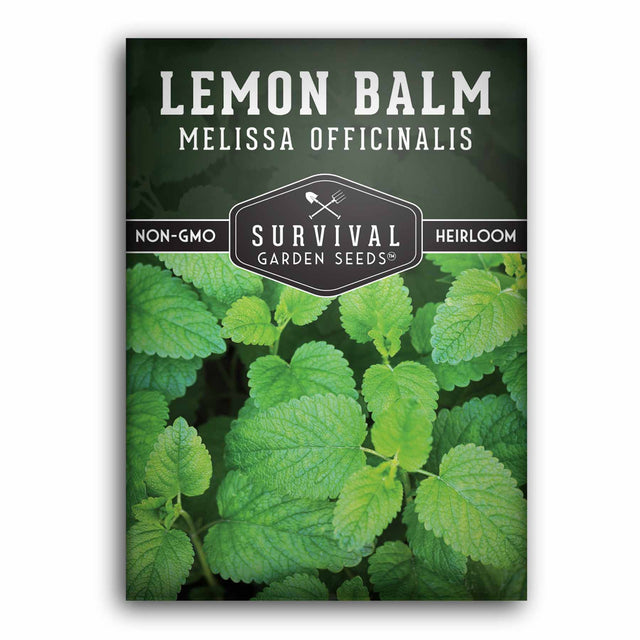Lemon Balm Seeds (Melissa officinalis) – Fragrant Perennial Herb for Tea, Culinary Use & Home Gardens – Survival Garden Seeds
Heirloom - Non-GMO - Reliable Germination
Lemon Balm Seeds (Melissa officinalis) – Fragrant Perennial Herb for Tea, Culinary Use & Home Gardens – Survival Garden Seeds - 1 Packet is backordered and will ship as soon as it is back in stock.
Couldn't load pickup availability
Enjoy the soothing fragrance and flavor of Lemon Balm (Melissa officinalis) with seeds from Survival Garden Seeds. A beloved perennial from the mint family, lemon balm brings a gentle lemony scent and taste to your garden or kitchen. Ideal for fresh herbal teas, culinary dishes, or natural remedies, this easy-to-grow herb is a favorite among gardeners seeking beauty and versatility.
Lemony Fresh and Naturally Calming
Lemon balm’s mild, citrus-mint aroma makes it a refreshing choice for homegrown tea blends. Traditionally valued for its relaxing and digestive properties, it’s a great addition to any herbal apothecary or wellness garden.
Beautiful and Productive Plants
Mature lemon balm plants feature lush, bright green leaves and delicate white or pale-yellow flowers. Growing up to 3 feet tall, they add color and fragrance to any herb bed, border, or container garden. The plant’s vibrant foliage also attracts beneficial pollinators while staying manageable and easy to care for.
Easy to Grow Indoors or Outdoors
Lemon balm thrives in full sun to partial shade and prefers well-drained soil. Sow seeds directly outdoors after frost or start indoors for earlier harvests. With regular watering and room to spread, this hardy perennial will return year after year with minimal effort.
Why Gardeners Love Lemon Balm:
- Fragrant & flavorful: Adds fresh lemon aroma to teas and recipes.
- Naturally soothing: Popular in herbal wellness and relaxation blends.
- Versatile & easy to grow: Ideal for containers, herb gardens, or kitchen windowsills.
- Pollinator-friendly: Attracts bees with its gentle blooms.
How to Grow:
- Start seeds indoors 6–8 weeks before last frost or sow directly outdoors.
- Lightly cover seeds; keep soil moist until germination (7–14 days).
- Transplant or thin seedlings to 12–18 inches apart.
- Harvest leaves before flowering for best flavor and aroma.
Net Wt. 100MG
Heirloom Herb Seeds
All of our seeds are open-pollinated, non-GMO, heirloom varieties with tested germination rates
Specifications
Specifications
-
Botanical Name
-
Seasonality
-
Planting Zones
-
Light
-
Soil Temp for Germination
-
Germination Time
-
Planting Depth
-
Plant Size
-
Days to Bloom or Harvest
-
Growing Instructions
-
Seed Saving Instructions
-
Seed Count (approximate)
Payment & Security
Your payment information is processed securely. We do not store credit card details nor have access to your credit card information.
Why Choose Survival Garden Seeds
At Survival Garden Seeds, we believe in preparing today for tomorrow’s peace of mind. That’s why we offer only heirloom, non-GMO, and untreated seeds you can trust to nourish your family and support a sustainable lifestyle. As a family-owned American company, we’re committed to providing seeds that grow strong and true—helping you cultivate health, resilience, and beauty in your garden.
Frequently Asked Questions
What are heirloom seeds?
What are heirloom seeds?
Heirloom seeds are the types of seeds your grandparents grew. These varieties have been passed down from generation to generation. They’re old reliable open-pollinated varieties that aren’t typically grown commercially. Instead, they have a rich history that predates modern breeding techniques.
You can learn more about open-pollinated, heirloom, and non-GMO seeds in our Survival Garden Training blog.
How do I know my seeds are fresh?
How do I know my seeds are fresh?
Every seed packet includes a "packed for" date, and we germination test each seed lot before packaging to ensure you receive viable, high-quality seeds that are ready to grow.
Are your seeds treated?
Are your seeds treated?
No, we do not pre-treat our farmer seeds. All of our garden seeds for sale are untreated, open-pollinated, non-GMO, and heirloom varieties. They are kept in temperature-controlled cooler storage until they are packed and shipped to keep them pest and disease-free.
In what zones can I grow your seeds?
In what zones can I grow your seeds?
The seeds in our collections are specifically chosen from varieties that can be successfully grown from Zone 3 to Zone 10 USDA Hardiness Zones. However, individual varieties have specific needs to thrive in different environments. Each seed pack has optimal temperatures for germination and instructions on seed starting. Consult local frost dates to plan your garden and get the most out of your seeds.
What is the shelf life of these gardening seeds?
What is the shelf life of these gardening seeds?
Most seeds remain viable for 3 to 5 years or longer when stored properly. Check your seed packet for specific varieties. For best results, keep your seeds in a cool, dry place away from direct sunlight and moisture. Store them in an airtight container in a consistent temperature environment—a refrigerator or cool basement works well. Proper storage helps maintain germination rates and extends seed life well beyond the packed date.
Where are Survival Garden Seeds sourced?
Where are Survival Garden Seeds sourced?
The majority of our seeds are sourced in the United States, with a few exceptions when the seed is difficult to source domestically. Whenever we do have to source outside of the US, we ensure our seeds are safe to grow, non-GMO varieties that meet our standards for germination and reliability.

